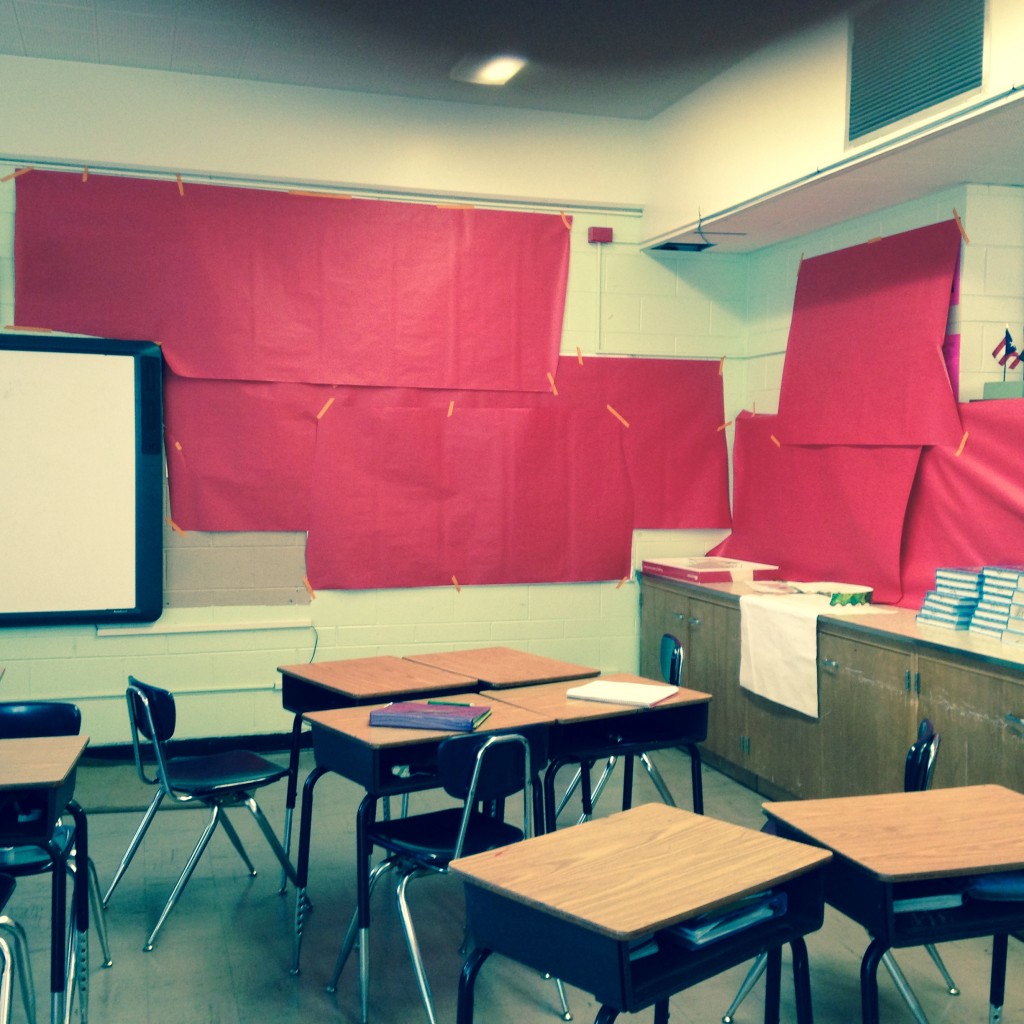I felt sorry for that principal. One assistant principal down. Five teachers down. How do you even begin to hire all those replacements in October? I felt sorry for the principal who had three teachers quit together midday last week, a fact proudly proclaimed in one of my social media feeds. I feel sorry for the teachers who do not have enough paraprofessional help and for the paraprofessionals are are NOT happy to serve as substitute teachers — sometimes in violation of the law — because there has to be an adult body in the front of that classroom; the number of qualified bodies in too many places now sometimes totals less than the number of classrooms. I feel profoundly sorry for the kids who are being impacted by this educational game of musical chairs, the game where some classrooms end up being “out” — out of luck, out of teachers and out of learning time for that day or longer.

Can I make a suggestion? Let’s go Back to a Better Future. In that future, evaluations will not be long streams of demonstrated inadequacies (Yes, Charlotte Danielson and others meant well, but what they produced with their lengthy rubrics on pedagogical effectiveness has been senselessly demoralizing. I remember going upstairs to comfort the woman on the floor above me, who after the students left was simply wailing in despair after reading her evaluation — and she was one of the best teachers in my school in my personal view. Other teachers and I kept reassuring her that, yes, she did her job well even as she talked about the fact that maybe teaching had been a mistake and maybe the evaluation was proof that she ought to move on.
She was a great teacher. The whole scene was surreal. But it happened and I was there to watch the equivalent of handing a straight “A” student a straight “C” report card.
Eduhonesty: We would never do to students what we do to teachers. We point out all the areas where teachers should work to improve, but once the rubric got long enough those evaluations proved toxic. In the year before I retired, Danielson’s rubric contained “4 domains, 22 components, and 76 elements. In one class period, no one can observe all of that and a regrettable number of evaluators will likely infer or even make up numbers to fill out the requirements.” (Danielson’s axe with details | Notes from the Educational Trenches (eduhonesty.com))
Teachers understand that criticism must be handled with care. A laundry list of comments on mistakes frequently ends up in a trash, those comments unread. Too much criticism and students stop listening. I always picked my most important corrections and put the big ones on a paper or test, and then left the nit-picking alone. “Remember to capitalize the names of cities! :-)” I would write, before deciding to worry about commas later. Then I would bundle compliments into the mix of observations.
Too much criticism makes students feel … sad, angry, hopeless, demoralized, tired, anxious, agitated, and many other words for feelings that hurt. That criticism makes those students understandably want to avoid school, or at least the parts of school associated with all the put-downs. Why should teachers be different?
Eduhonesty: I am reminded of Shylock: “If you prick us, do we not bleed? if you tickle us, do we not laugh? if you poison us, do we not die? and if you wrong us, shall we not revenge?”. – (Act III, scene I).” ― William Shakespeare, The Merchant of Venice
I repeat: We would never do to students what we do to teachers. We are years past due at looking at coaching and evaluation systems that hack away at teacher’s independence, pride, happiness and self-esteem. Yes, we must evaluate and coach teachers, but I believe we should look backward in time.
Job satisfaction in teaching was vastly higher 25 years ago than it is today. The reasons are multifold and changing, but part of that change comes from evaluation systems. Most teachers take grades pretty seriously and year after year of getting a “C+” report card wears them down, especially when they are working nonstop to produce “A” quality instruction — and especially when they sense that they have frequently succeeded but somehow they can never get the high grade they sense they deserve.
The rubrics have become too long, the micromanaging too ever-present. When an evaluation system demands that a person do 60 impossible things before breakfast, then penalizes that person for only doing 48, that rubric is killing enthusiasm, not improving pedagogy. When the work becomes too hard, people give up. That throwing-up-the-hands response is actually healthy, a natural form of psychological self-defense.
Positive reinforcement: Not just for students and children. Adults can use kind words, praise and extra credit points too.

Resigning can be a form of revenge. Those autumn job fairs? Revenge has fueled the resignations and retirements that created those job fairs. COVID is getting much of the blame for teacher flight, and COVID is unquestionably in the picture, but I thought I’d write this post today because I strongly suspect COVID is becoming an excuse. “It’s COVID” can’t be allowed to become a justification for ignoring the sprawling rubrics and punitive messages sucking the joy out of teaching.
Wishing you all a great week, Jocelyn Turner
